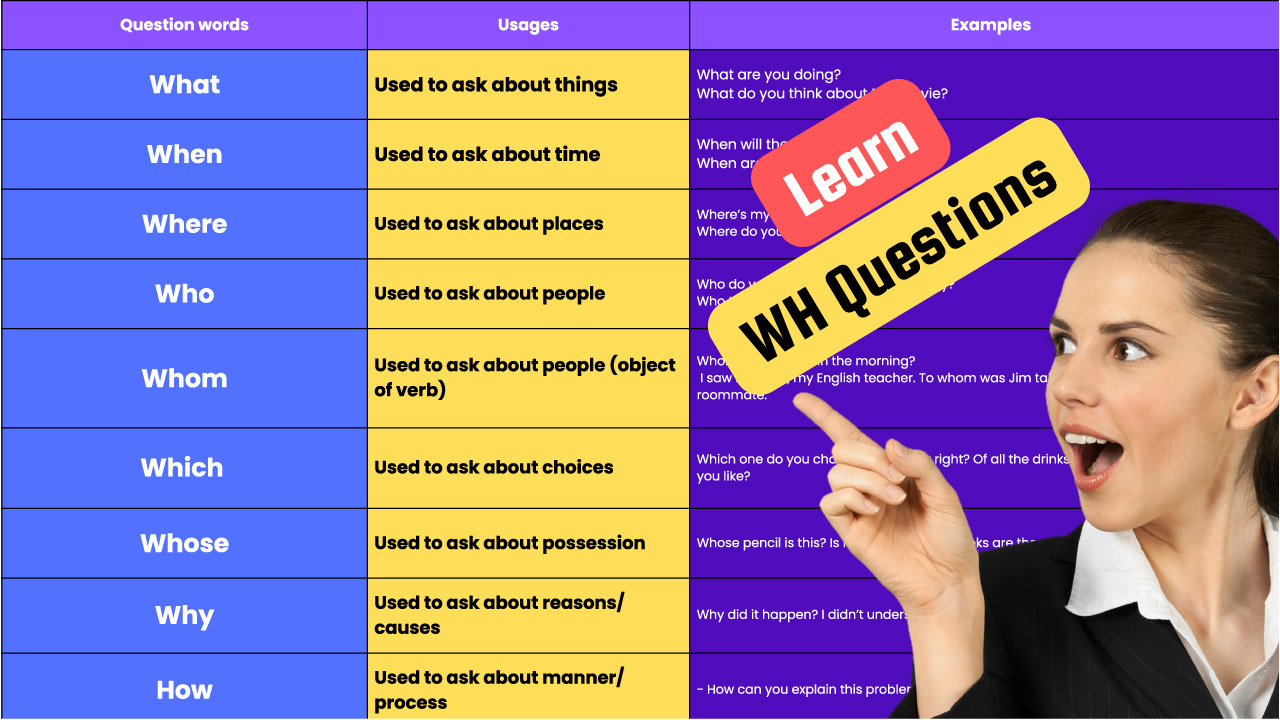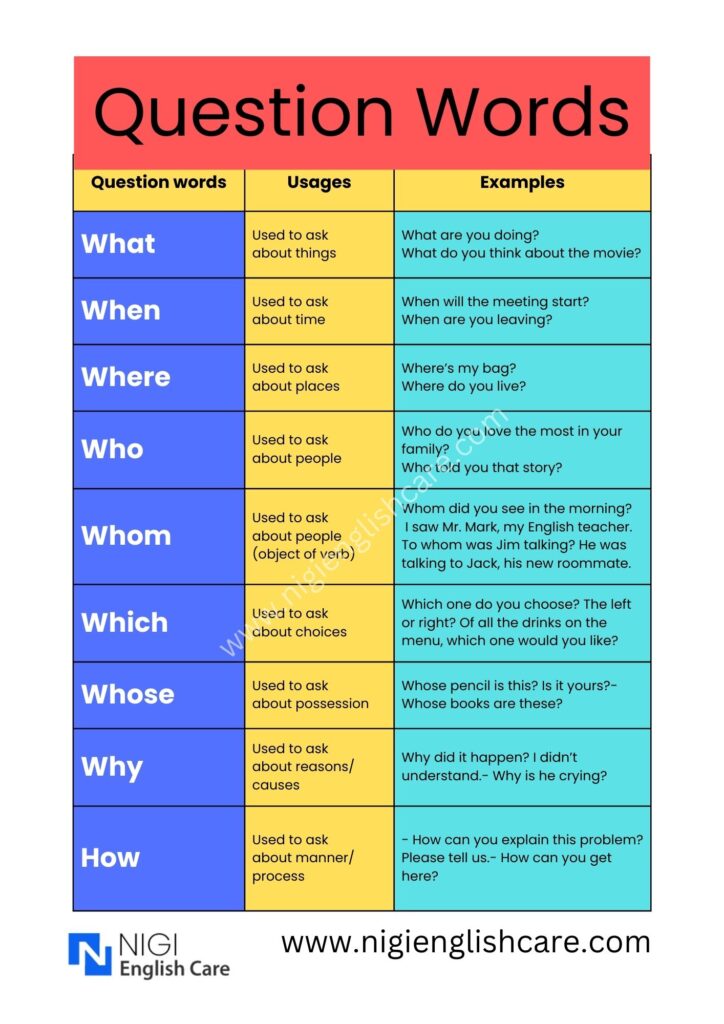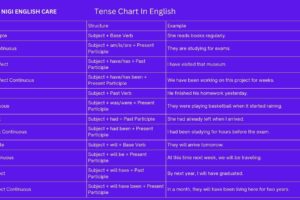
WH-Questions Words in English
WH-Questions Words
WH-Questions Words: Communication is the foundation of human interaction, and the art of asking questions plays a pivotal role in this process. Among the various types of questions, WH-questions, also known as “Question Words,” hold a special significance. These questions begin with words like “who,” “what,” “where,” “when,” “why,” and “how,” and they serve as powerful tools to seek information, clarify doubts, and engage in meaningful conversations.
| Question words | Usages | Examples |
|---|---|---|
| What | Used to ask about things | – What are you doing?- What do you think about the movie? |
| When | Used to ask about people (object of the verb) | – When will the meeting start? – When are you leaving? |
| Where | Used to ask about places | – Where’s my bag?- Where do you live? |
| Who | Used to ask about people | – Who do you love the most in your family?- Who told you that story? |
| Whom | Used to ask about the possession | – Whom did you see in the morning? I saw Mr. Mark, my English teacher.- Whom was Jim talking to? He was talking to Jack, his new roommate. |
| Which | Used to ask about choices | – Which one do you choose? The left or right?- Of all the drinks in the menu, which one would you like? |
| Whose | Used to ask about possession | – Whose pencil is this? Is it yours?- Whose books are these? |
| Why | Used to ask about reasons/ causes | – Why did it happen? I didn’t understand.- Why is he crying? |
| How | Used to ask about manner/ process | – How can you explain this problem? Please tell us.- How can you get here? |
How to form WH questions?
Forming WH questions is a straightforward process. To create a WH question, follow these steps:
- Identify the WH-Questions Words: First, determine the specific information you want to ask about. Choose the appropriate WH-word based on the type of information you seek:
- Who: For asking about people or identities.
- What: For asking about things, ideas, activities, or events.
- Where: For asking about locations or places.
- When: For asking about the time or the occurrence of an event.
- Why: For asking about reasons or motivations.
- How: For asking about methods, manners, or processes.
- Invert the Subject and Verb: In English, most WH questions require the inversion of the subject and the verb. Place the WH-word at the beginning of the question, followed by the auxiliary verb (if needed), and then the subject and main verb. If there is no auxiliary verb, use the appropriate form of the verb “to do.”
- Add the Rest of the Sentence: Complete the question by adding any additional words or phrases necessary to form a grammatically correct question.
Let’s look at some examples of forming WH-Questions Words :
1. Who: Asking about people or identities.
- Statement: She is a doctor.
- Question: Who is she?
2. What: Asking about things, ideas, activities, or events.
- Statement: They are reading a book.
- Question: What are they reading?
3. Where: Asking about locations or places.
- Statement: The party is at John’s house.
- Question: Where is the party?
4. When: Asking about the time or the occurrence of an event.
- Statement: The concert starts at 7 PM.
- Question: When does the concert start?
5. Why: Asking about reasons or motivations.
- Statement: He is studying for the exam.
- Question: Why is he studying for the exam?
6. How: Asking about methods, manners, or processes.
- Statement: They travel by train.
- Question: How do they travel?
Keep in mind that not all questions require the inversion of the subject and verb. For example, “What’s your name?” or “How old are you?” do not follow the typical subject-verb inversion pattern. However, the majority of WH questions adhere to this structure.
Practicing forming WH-questions will help you become more fluent in using them in conversations and discussions, enhancing your communication skills.

Tag:Active Listening, Communication Skills, Communication Techniques with WH-Questions, Critical Thinking, Curiosity in Communication, Effective Questions, Engaging Through WH-Questions, Enhancing Communication Skills, Exploring Question Words, How to Form WH-Questions, Importance of WH-Questions, Meaningful Conversations, Open-Ended Responses, Power of WH-Questions, Problem-Solving, Question Words, Understanding the Role of Question Words, Using Question Words for Deeper Understanding, Using WH-Questions in Conversations, WH-Questions




